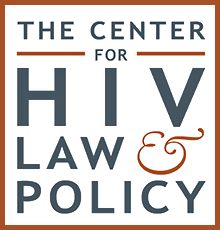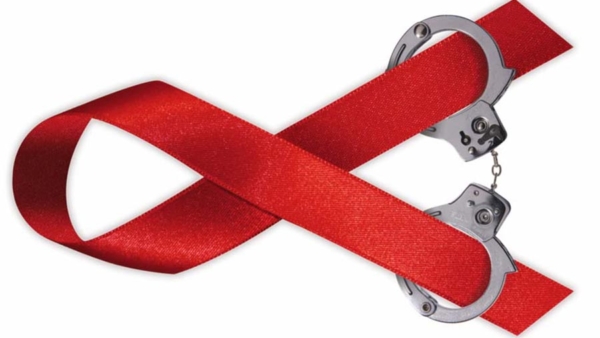Overview
Maryland law previously maintained one HIV-specific provision criminalising perceived ‘exposure’, but in 2025 this law was repealed. General criminal laws have also been used to prosecute people living with HIV.
Prior to its repeal following bipartisan support in 2025, the HIV-specific provision criminalised the ‘knowing transfer of HIV to another’, or attempts to do so, with a penalty of up to three years’ imprisonment and a fine. Although the provision was drafted in terms of transmission, this was not a required element of the offence and only perceived ‘exposure’ was required. The provision did not define what kind of conduct was covered, and cases ranging from sexual conduct to biting were prosecuted, suggesting that any type of ‘exposure’ was covered regardless of risk of transmission. There was also no defence of condom use or other protections.
We received a handful of reports of prosecutions under this HIV-specific provision during its lifetime, including a 2019 case in which a man was sentenced to 30 years’ imprisonment, with all but nine years suspended, after having sex with at least three women. However, research published by the Williams Institute in January 2024 reveals this to be a substantial underreporting of enforcement of the HIV provision in Maryland. The research found at least 104 prosecutions (148 separate charges) under this law from the first prosecution in March 2000 to 2020. Case numbers have increased over time, with a more than 50% increase from the first decade of enforcement to the second. Where case outcomes are available, only 10% resulted in conviction on an HIV-related charge, however media reports indicated that sometimes plea bargains are reached in which such charges are dropped in return for a guilty plea on general criminal laws. Both men (86% of cases to 66% of people living with HIV) and black people (82% to 71%) were overrepresented in prosecution data, with black men (68% to 44%) in particular most disproportionately targeted under the law.
The Williams Institute data shows that general criminal laws, including reckless endangerment and assault, have also frequently been used to prosecute HIV ‘exposure’ cases, most often alongside HIV-charges but on some occasions without. Charges under the reckless endangerment offence require a substantial risk of death or serious injury. In 2015, a man pleaded guilty to two counts of reckless endangerment for having sex with two women after making an agreement with prosecutors in which HIV-specific charges would be dropped. This was despite the fact that he had an undetectable viral load and could not transmit HIV. He was sentenced to 18 months’ imprisonment and was also ordered not to have unprotected sex, but was found dead in his cell in 2017. In 1996 a case involving three counts of rape, the Maryland Court of Appeals stated that a man living with with HIV could not be convicted of attempted murder, as charged, as there was not sufficient evidence that he intended to transmit HIV. Along with rape, the man was convicted of reckless endangerment.
Charges under other offences have been brought on the basis of HIV status for conduct which carries virtually no risk of transmission, such as a 2010 charge of second-degree assault for spitting which resulted in a five-year prison sentence and a 2016 charge of attempted murder for biting. It is not clear whether this latter case resulted in conviction, but previous case law indicates that an intention to transmit must be proven, rather than mere recklessness (see CHLP report below).
Maryland law also contains a provision criminalising people with STIs that ‘endanger public health’ who fail to take ‘proper precautions’ against ‘exposure’ in public places, or transfer articles that have been ‘exposed’ to the STI without disinfection. The penalty available is up to one year imprisonment and a fine. The specific STIs included are not stated, so it is unclear whether this includes HIV.
For a detailed analysis of HIV criminalisation in Maryland, as well as all other US states, see the Center for HIV Law and Policy report, HIV Criminalisation in the United States: a Sourcebook on State and Federal HIV Criminal Law and Practice.
Laws
Maryland Statutes § 18-601.1
Exposure of Other Individuals — by Individual With Human Immunodeficiency Virus
(a) An individual who has the human immunodeficiency virus may not knowingly transfer or attempt to transfer the human immunodeficiency virus to another individual.
(b) A person who violates the provisions of this section is guilty of a misdemeanor and on conviction is subject to a fine not exceeding $2,500 or imprisonment not exceeding 3 years or both.
Maryland Statutes § 3-204
Reckless endangerment
(a) A person may not recklessly:
(1) engage in conduct that creates a substantial risk of death or serious physical injury to another; or
(2) discharge a firearm from a motor vehicle in a manner that creates a substantial risk of death or serious physical injury to another.
(b) A person who violates this section is guilty of the misdemeanor of reckless endangerment and on conviction is subject to imprisonment not exceeding 5 years or a fine not exceeding $5,000 or both.
Maryland Statutes
§ 3-204 Assault in the first degree
(…)
(b) (1) A person may not intentionally cause or attempt to cause serious physical injury to another.
(…)
(c) A person who violates this section is guilty of the felony of assault in the first degree and on conviction is subject to imprisonment not exceeding 25 years.
§ 3-205 Assault in the second degree
(…)
(c) (1) In this subsection, “physical injury” means any impairment of physical condition, excluding minor injuries.
(2) A person may not intentionally cause physical injury to another if the person knows or has reason to know that the other is:
(i) a law enforcement officer engaged in the performance of the officer’s official duties;
(ii) a parole or probation agent engaged in the performance of the agent’s official duties; or
(iii) a firefighter, an emergency medical technician, a rescue squad member, or any other first responder engaged in providing emergency medical care or rescue services.
(3) A person who violates paragraph (2) of this subsection is guilty of the felony of assault in the second degree and on conviction is subject to imprisonment not exceeding 10 years or a fine not exceeding $5,000 or both.
Further resources
Not all laws used to prosecute people living with HIV in this state are included on this page. For a comprehensive overview and analysis of HIV-related criminal and similar laws and policies, visit The Center for HIV Law and Policy






